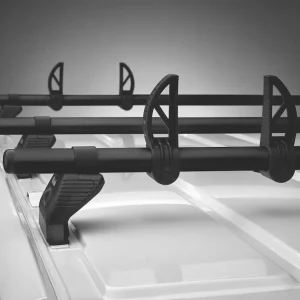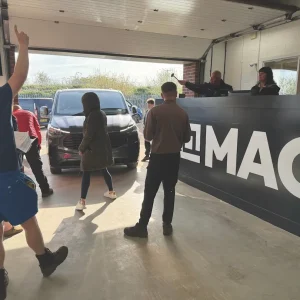Van drivers in the UK don’t need to plough through statistics to see how much the light commercial vehicle market has grown in the past decade – the health of the sector is clearly evident on our roads.
But for those who might enjoy a stat or two, Society of Motor Manufacturers and Traders (SMMT) figures show there are now 50% more vans on our roads than there were in 2009, which equates to a total of 3.4 million UK van users. The huge swell in internet shopping, and more self-employed traders, are both credited with this rise.
While this is good news for LCV manufacturers, fleets, drivers employed in the sector, and indeed the UK economy, the increase in vans on UK roads brings an increased need to make sure van drivers understand how to drive as safely as possible within the correct legal limits. This knowledge will help to ensure the safety of not only the drivers, but any passengers, and other road users, raise standards across the sector, and reduce penalty charge notices and MOT failures.
It is perhaps a lack of knowledge that contributes to this next statistic: Driver and Vehicle Standards Agency (DVSA) and Department for Transport (DfT) data shows that from 2018 to 2019 vehicle overloading accounted for a huge 73% of all convictions secured for light goods vehicle offences.
While the risk of injury to the driver and other road users is the primary concern for the Fleet Operator Recognition Scheme (FORS), it is crucial that its members also understand their legal requirements, and why the organisation continues to provide dedicated training and support for light commercial vehicle users, including in relation to loading and unloading.
At FORS Bronze – the first level of the progressive accreditation – van users must ensure a load safety policy is in place, with supporting documentation. Members must ensure vehicle loads fit within legal limits and are correctly and evenly distributed.
The loads must be restrained to prevent danger to the driver, passengers or other road users, and included the use of a restraint system such as partitioning, racking, shelving, netting or sheeting.
FORS offers a complete compliance framework for light commercial operators and drivers, including regular preventative maintenance, inspections, and daily checks to ensure roadworthiness, allowing LCV drivers and operators to ensure legality and drive up standards/
For more information visit www.fors-online.org.uk
The Standard is produced in association with






